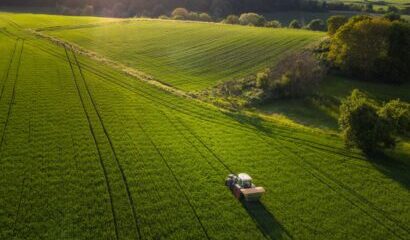The knives are out with expected acceleration of Australian corporate carveouts in 2025
Summary
Corporate carveouts in Australia, especially in the listed sector, are expected to accelerate in 2025, with private equity (PE) firms leading the charge, according to dealmakers polled by Mergermarket.
Ongoing economic and ESG pressures, high interest rates and increasing shareholder activism are forcing these carveouts to strengthen balance sheets, reduce debt, and streamline operations.
Downer EDI [ASX:DOW], for one, is working to finalise three non-core divestments as part of a portfolio simplification, with Mergermarket revealing today that the company is confident in reaching a sale agreement for its 49% stake in public transport operator Keolis Downer this calendar year.
Volatility in currency, commodities, and supply chains have further eroded investor confidence, prompting a wave of divestments in key sectors like mining, energy, and retail, while a focus on renewables will drive divestment of high-carbon assets to align with clean energy targets and ESG mandates, said Michael Bates, senior managing director at FTI Consulting.
Activist shareholders are increasingly agitating for portfolio assets to be sold to realise value not being seen in underlying share prices, noted Stephen Pickles, managing director, corporate finance at Jarden Group, pointing to Healius’ [ASX:HLS] September 2024 AUD 1.17bn sale of Lumus Imaging to Affinity Equity Partners.
US tariffs on China and held-back proposed tariffs on Canada and Mexico flagged by US President Donald Trump could also have serious knock-on effects for Australian M&A in the form of asset sales, as reported by Mergermarket this week (10 February).
“2025 should be a good market for corporate carveouts, which will be a key focus for us this year,” said Pacific Equity Partners (PEP) Managing Director Matt Robinson.
While the bulk of activity has been and will continue to be in public markets as these tend to be larger companies with multiple divisions that lend themselves to corporate disposal, we have also seen some private carveout deals, Robinson said. Indeed, as reported by Mergermarket (10 February), a potential hospital carveout could be on the cards for Healthscope.
Robinson also believes global businesses divesting operations Down Under will continue to feature as these are often deemed lower priority due to their size when compared with larger global markets, as seen with Singapore Post’s [SGX:SO8] sale of its Australia business, Freight Management, to funds advised by PEP last December for AUD 1.02bn.
“When the sum-of-the-parts doesn’t equal the underlying share price, this creates opportunities for carveout transactions, noted Pickles at Jarden, which advised on Orora’s [ASX:ORA] sale of its North American packaging division last September to US PE firm Clayton, Dubilier & Rice-backed Veritiv for AUD 1.78bn. Jarden is also advising Incitec Pivot [ASX:IPL] on its fertiliser business sale.
PE to dominate carveout landscape
Strategic buyers, especially in sectors like renewables, healthcare, and technology will play a role, but PE, with its emphasis on value creation and ability to navigate complex transactions, will be the dominant players in the carveout landscape, FTI Consulting’s Bates said.
“PE’s ability to manage transitional arrangements and unlock operational efficiencies is especially valuable in high-interest-rate environments, where access to affordable capital is constrained,” he said.
PE is typically better equipped to undertake these deals given their risk tolerance, willingness to deal with complex situations and ability to see through short-term financial underperformance and market volatility, agreed Jarden’s Pickles.
These assets are often difficult to price as they are rarely standalone businesses, said PEP’s Robinson, noting that his firm is a “natural buyer” and has a competitive advantage and long tenure in the space, having completed 19 corporate carveouts in Australia and New Zealand, “significantly more than any other PE firm”.
“We are often called when an asset comes to market because it is known that we will deliver with certainty through both the transaction itself and smooth separation from the parent entity. Consequently, we are often able to secure exclusivity,” Robinson added.
IFM Investors will be paying more attention to corporate carveouts in 2025 and expects its peers to be doing the same, Executive Director Adrian Kerley said. “PE firms have significant dry powder to deploy and are adept at doing these types of deals, which in the main are quite complex,” he said.
The cost of capital is putting companies under more pressure than ever to stop supporting loss-making divisions, Kerley said, noting that companies will want to avoid scenarios like that of Wesfarmers [ASX:WES], which in January flagged its intention to cut costs by closing online store Catch.
IFM, which has already undertaken corporate carveouts in its Growth Partners Fund 2, will continue to consider deals that fit its focus on growth buy-outs in software, healthcare, and tech-enabled services especially with energy transition components, Kerley said.
In September 2023, IFM made a substantial growth equity investment in new energy software company Tally Group and then undertook the carveout of Alinta’s CORE ERP system, for an undisclosed sum. This January Bermuda-based financial services firm Apex Group bought Iress’ [ASX:IRE] superannuation business for AUD 40m with IFM portfolio company Novigi.
Corporate carveouts are also of interest to The Riverside Company in Australia, said Melbourne-based Managing Partner Simon Feiglin. “We expect to see more corporate carveouts this year and these types of deals are of interest to us, although they will still be a small piece of the overall market we play in, as our specialist focus is on the low end of the mid-market,” he said.
Innovative structures to drive more deals
PE firms’ increasing appetite for innovative deal structures including taking partial equity stakes or setting up joint ventures (JVs) to complete corporate carveouts, further enhances their role in the carveout landscape, enabling more deals to be successfully executed, as FTI Consulting’s Bates pointed out.
These deals are even harder to execute, but we will see more as stakeholders look to unlock value, Robinson said. “PEP will be playing and also has a competitive advantage here as we have been doing these deals for a long time,” he said, citing Asaleo Care [ASX:AHY], which was a leverage joint venture with SCA [SCA B:STO] before listing on the ASX in 2014.
In December 2023, PEP structured a tripartite carveout of NAB’s New Zealand wealth management business, acquiring 35% in a new entity named FirstCape, with NAB and Jarden Wealth retaining shareholdings of 45% and 20%, respectively. “PEP was given exclusivity on the deal and went from first briefing to a binding transaction in three months,” Robinson noted.
“These flexible structures address seller concerns by balancing the need for capital injection with the desire for ongoing involvement, reducing potential resistance to deals and opening opportunities that might not otherwise materialise,” FTI Consulting’s Bates said.
A partial sale or JV structure is useful when a board needs to divest an asset but can’t realise the right valuation as some proceeds can be realised upfront and full valuation at final exit, Jarden’s Pickles said, citing Jarden client Pact Group’s [ASX:PGH] 50% sale of its crate pooling business to Morrison & Co for AUD 160m in 2023.









